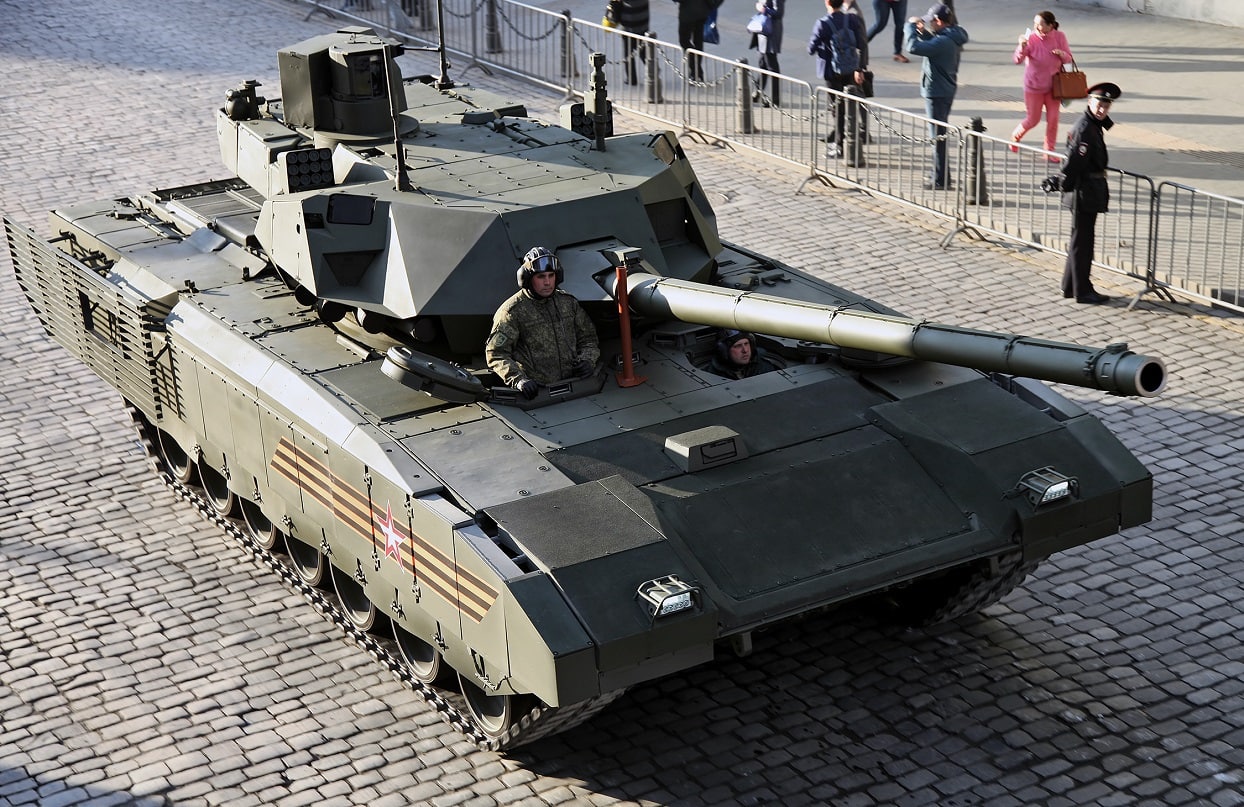There is little question that the Russian military has been decimated during the Ukraine war.
In fact, some have even raised the question as to whether the world greatly overestimated the capabilities of the Russian military.
But just how badly is Putin’s war machine damaged?
Poor Russian Military Performance
Given its poor use of Combined Arms, smaller amount of modernized platforms, and weapons compared with the U.S., and ineffective warzone tactics regarding supplies and integrated attack formations, it is not unrealistic to pose the question of whether Russia’s military is a “paper tiger.”
Russia does appear to have some extremely advanced technology in the realm of hypersonics, 5th-generation aircraft, and its next-generation T-14 Armata tank.
However, Russia does not appear to possess these weapons in numbers sufficient to “mass” power and truly rival NATO and the U.S. Published reports in the Russian media say their military only operates a handful of T-14s and Su-57s and may lack the funding and industrial capacity to build a large fleet.
Arming Russia’s Forces
Available statistics on Russia’s military published in Global Firepower state that Russia operates as many as 12,000 tanks and 773 fighter jets. However, what percentage of these have been maintained, modernized, and kept viable for modern war is uncertain. That may remain somewhat of a question mark, especially because Russian tanks have been getting decimated in Ukraine in large and impactful numbers.
Despite the large number of fighter jets Russia is reported to have, they have not as of yet been able to achieve air superiority in the skies above Ukraine, something which remains somewhat inexplicable.
Certainly, Ukraine has received some air defense capability of great value, and Ukrainian pilots are, without question, fighting with unparalleled tenacity, yet neither of these factors fully explain why Russia’s overwhelming numerical advantage in the sky has not yielded favorable results for their military.
Multiple open-source reports suggest that Russia has already lost between 1,000 and 2,000 tanks, while Ukraine’s Ministry of Defense claims the number of Russian tank losses at more than 3,000. The scale of loss raises the question as to whether Russia can recover from this kind of damage.
Russia will likely not recover anytime soon, despite their being listed as having 12,000 tanks. It is likely that thousands of these Russian tanks have not been maintained, upgraded, or kept viable in a modern threat environment. In fact, rebuilding or replacing destroyed tanks will require a capable, operational production line and all the necessary parts and materials to manufacture new tanks.
Therefore, why Russia’s military technology in the realm of hypersonics and perhaps even main battle tank and 5th-generation airwar is clearly taken seriously as a major threat to the U.S. and NATO.
It seems unlikely they have or could reconstitute a formidable land or air force. When it comes to the actual size of Russia’s upgraded, highly capable fleet of cutting-edge mechanized vehicles or fighter jets, Russia seems to suffer a massive numbers deficit when compared to NATO, despite the sheer size of its aging fleet. Specifically, most of Russia’s tank force is T-72 and T-90 tanks, which continue to prove extremely vulnerable in Ukraine.
Russia’s T-14 Armata tank, reportedly now fighting against Ukraine, simply does appear to exist in impactful numbers.
There is also the less calculable, yet extremely significant Russian military morale problem, which is only likely to worsen as the war continues.
Many Russian soldiers, thousands of which have already demonstrated a lack of will to fight, are likely to be even more disaffected at the end of this war – whenever that might be.
Therefore, apart from losing thousands of tanks, soldiers, and mechanized vehicles, the morale of the Russian military may be irreparably corroded by its war in Ukraine.
Kris Osborn is the Military Affairs Editor of 19FortyFive and President of Warrior Maven – Center for Military Modernization. Osborn previously served at the Pentagon as a Highly Qualified Expert with the Office of the Assistant Secretary of the Army—Acquisition, Logistics & Technology. Osborn has also worked as an anchor and on-air military specialist at national TV networks. He has appeared as a guest military expert on Fox News, MSNBC, The Military Channel, and The History Channel. He also has a Masters Degree in Comparative Literature from Columbia University

